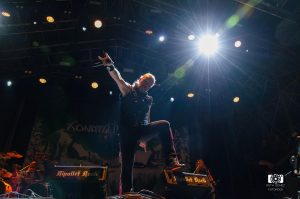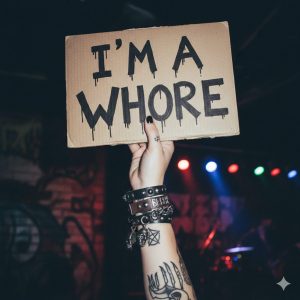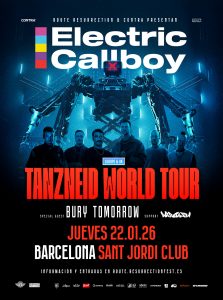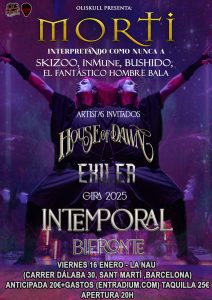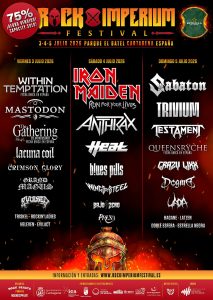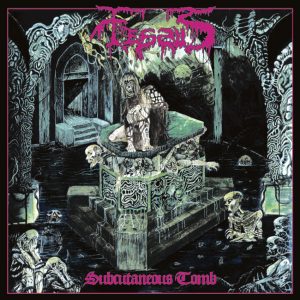FINAL GIRLS: Survival, Rage, and Rebellion: The Fight for Space in Death Metal
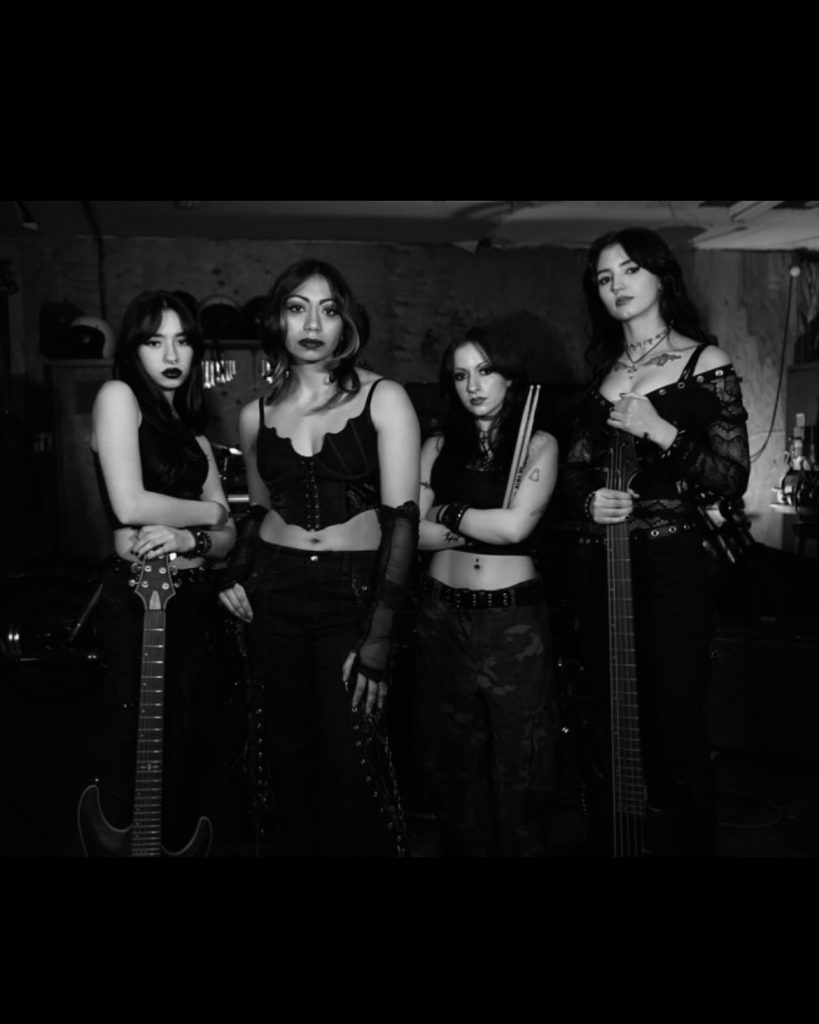
In a genre known for its intensity and aggression, breaking through the noise is never easy—especially when the scene still struggles with inclusivity. But for this band, survival isn’t just a theme in their music; it’s a reality they confront daily. Drawing from horror’s most resilient heroines, their work is a battle cry against industry gatekeeping, gendered expectations, and the broader societal issues reflected in their lyrics. From the visceral themes of revenge and survival in Arachne to the political undercurrents of Prey on the Weak, they refuse to be confined by stereotypes. In this interview, we dive into their evolution as artists, their fight for a more inclusive metal scene, and the socio-political themes that drive their music.
– Final Girl Trope in Metal: Your band’s name and image strongly reference the «final girl» archetype in horror, which typically represents resilience and survival. How does this trope resonate with you as artists, and do you see any parallels between this figure and the experience of carving out space in a male-dominated genre like death metal?
{CASEY}
I think the key part about the trope itself is the fact that resilience is very paramount to our identity as a band. Being an all female band requires a lot of resilience in the death metal genre. There are many times where we are sexualized and devalued as a band strictly because of our gender. It can get pretty demoralizing at times, however we continue to push forward because there simply is no other option for us. For women, it is often a case of sink or swim, and I myself find this to be true in all male dominated spaces. As someone who is also a comic artist and martial artist, I face the same scrutiny in these communities that I do in the metal community. My bandmates and I are constantly reminded that we have to work 20 times harder than our male counterparts for both respect and recognition for what we do. For example, Ash is always trying to outdo herself every time she writes and Sofia is always building up her endurance as a drummer. We are constantly getting compared to men so we have to rise above and get better with each opportunity that arises. Overall, we are always challenging ourselves to push beyond what is expected of us.
– Artistic Evolution: From Occult Classic to Prey on the Weak, you’ve experimented with integrating clean and harsh vocals and emphasized dynamic shifts. How do these choices reflect where each of you stands artistically right now? Are there certain sounds or techniques you’ve yet to explore but plan to?
{CASEY}
I can’t really speak on Occult Classic but I could say Prey on the Weak has an interesting blend of different experimental sounds. We as a band are growing and maturing and so is our taste in the music we write. It is always amazing when we can write a song that has a little bit of everyone’s personality in it. As far as our artistic stance goes, we have decided to shift our trajectory a little bit with the newer material that we are writing. Our goal is to write heavier music now with some melodic sections that will overall allow us to incorporate more sophisticated and technical song structures. We hold our music to very high standards so we are constantly trying to challenge ourselves as writers. We usually have this criteria for the songs we produce:
Is it heavy?
Is it fun for both us to play and for the audience to move to?
Is it cohesive?
Can this song tell a story effectively?
If the answer is yes, then it becomes a song.
– Horror and Empowerment: Arachne and other tracks delve into horror themes like revenge and survival. Given horror’s unique power to evoke fear and liberation, how do you see your work balancing these two elements? Is there a particular message you want fans to take from your thematic focus on horror and survival?
{CASEY}
One of the main concepts that we like to zero in on is the fact that life is gritty, raw, and sometimes terrifying. If you check out what’s going on in the world, there are tragedies all around us that encapsulate one big horror story. Sometimes when I ask people how they are doing, they answer me with “just surviving” and I think an answer like that is extremely layered. Most of us can agree that both external and internal forces that are outside of our control will try to kill our spirit, but controlling how we respond to those forces can become our best asset.
The theme of revenge serves more as allegory than anything else. I do not personally believe that revenge can ever be justified, but I like to explore how far someone would go to execute revenge. This can often be destructive and dangerous, shifting a victim to a perpetrator. One of the common plots we like to inject into our work is the prey-turned-predator mentality as seen in the Arachne music video.
Agency is also a consistent theme in Prey on the Weak and I truly think that agency is liberation. Taking back your power in situations that may otherwise render you powerless is the key to not just surviving, but thriving. When you layer that concept with the high stakes circumstances tied to the horror genre, you not only have different stories you can explore, but you can empower an audience to overcome the obstacles in their own lives, no matter how scary they may be.
– Gender and the Hardcore/Metal Scene: The hardcore and death metal scenes still have distinct challenges with inclusivity. Can you share some insights into your experiences navigating these scenes? How do you push back against any stereotypes or obstacles, and what do you hope for the next generation of female and non-binary metal artists?
{SOFIA D}
Yes, there are some very distinct challenges that we face as women in the metal community, especially when dealing with objectification, and how people chalk us up to be “less than” until they’ve really seen us live/ heard our music due to our gender. Yes, this is an ever- changing issue that has seen immense progress, but it still kinda sucks we have to prove ourselves time and time again. Usually those who don’t know us assume the worst rather than the best. None of us are big fans of bringing gender into music as it deepens the divide. Women should not be referenced in music as if they are their own genre. It would be weird if we referred to bands as “male-fronted” or “all male” in the same way we do “female- fronted” and “all female.” Women are not their own genre. Moving forward, we hope women and nonbinary individuals are acknowledged for their contribution to the metal community as equals rather than their own “group”. Eventually, in the coming years we hope gender wouldn’t even be a second thought in the industry and it will affect nothing whatsoever. Maybe kind interviewers such as yourself will no longer have to ask women these questions.
– Community and Inclusivity: You’ve built a reputation not just for your music but for the loyalty of your fans. How does your fanbase reflect your values, and do you feel a responsibility to create a more inclusive community through your music and live shows?
{CASEY}
We promote respect and safety first and foremost. Personally, I hate the word “fans” in particular, because our supporters are so much more than that. “Fans” put you in a position where you are above everyone else, and between you and me, that is where unhealthy power dynamics emerge. We are everyday people just like our supporters and that’s what makes our community so tight-knit. We do our best to be as authentic as possible in every aspect of our band.
We also are huge advocates for many overlapping marginalized communities. Being an all female band, with LGBTQ+ members of different cultural backgrounds puts us in the position where we are scrutinized heavily by the majority. We are fighting tooth and nail for representation and respect in spaces that lack acceptance of the communities that we advocate for. Of course we feel responsible for creating inclusivity- we ourselves yearn for that desperately! One of the biggest things I am thankful for is the fact that so many people from different walks of life can enjoy our music and come together to create something powerful.
– Political Undertones in Metal: Death metal has traditionally been a platform for confronting social and political issues, sometimes indirectly. Does Prey on the Weak or your upcoming work explore any socio-political themes, either overtly or as subtext? How do you view the role of death metal in social discourse?
{CASEY}
Our songs on Prey on the Weak have a consistent emphasis on the fact that our world lacks unity. The individualistic nature of our society is reflected in the lyricism of the songs on the EP. When community is absent, calamity follows.
As a lyricist, I have a complicated relationship with socio-political topics. On one hand, I write lyrics to escape reality, but often find myself confronted with it in the studio. That being said, I rarely like to spell out the themes lyrically as I love to tell stories and world-build in each song. I think that the themes are there quite clearly, but I want to immerse you into the world we have created first. Both Parasite and The Gallows have some on the nose confrontations with socio-political issues.
In the song Parasite, I loosely reference the story of the Resident Evil franchise as it contains themes of biological warfare, corruption, and eugenics. The protagonist of this song fights to preserve their humanity in a society that has lost it completely. He/she/ they actively hopes to not become tainted by the “parasite” that inflicts the world around them.
In The Gallows, I draw the comparison of modern day cancel culture to the Salem Witch Trials using the movie Fear Street Part Three: 1666 as my inspiration. The protagonist of this song is falsely accused of witchcraft, however her accusers are arguably more spiritually misguided than she is. I think we have collectively shifted into a “guilty before proven innocent” mentality, which is troubling since a lot of these judgements are not backed by logic when first faced with the allegations. I do acknowledge the benefits of publicly holding people accountable, but only if the facts are presented first. Many of those accused in the Salem Witch Trials were women unfortunately and did not have fair representation and factual evidence to support them. This also doubles down on the fact that women in 1666 had no agency and advocacy, which draws parallels to the issues modern women face today. Our upcoming single further explores the theme of women’s autonomy as the lyrics depict the life of a famous historical figure in the true crime genre.
Death metal to me has always been one of the most in-your-face genres, using social discourse as a key component to its culture. The death metal community thrives on counter-culture and it is evident that many bands exercise their views on politics, religion, and society in the subgenre. I like to believe that metal in itself is the most expressive genre because of the fact that musicians and listeners can freely critique their society without the judgemental gaze of the world on their backs.
– Finding Inspiration: Death metal, especially with horror elements, often draws from external influences—films, literature, cultural myths. Aside from horror, what are some unconventional or unexpected sources of inspiration that shape your music or approach?
{CASEY}
As a lyricist, I pull from all sorts of sources for inspiration. I love learning and I love reading, so I pull from history, philosophy, religion, and mythology when I am coming up with lyrics. I also do a lot of introspection when I write, so I articulate a lot of my personal experiences and struggles into the story of the song so it often blends both narrative and anecdotal forces together. With the right riffs, the lyrics could become exceptionally profound regardless of the source.
–On-Stage Persona vs. Reality: The intensity of Final Girls’ live shows is often highlighted in reviews, with performances described as raw and unfiltered. When you step off stage, do you feel a strong separation between your on-stage persona and your everyday selves? How does performing impact your sense of identity?
{SOFIA D}
I think it really depends for all of us. We each have our individual quirks when it comes to stage presence, but there is most definitely an intricate premeditated choreographic element that takes a lot of thought and time. In contrast, I also think our unfiltered intensity that comes from our love for the craft and the anguish stored in the fierceness of not only the lyrics, but the music, naturally allows for a very cathartic release and therefore an aggressive presence. I think onstage we are our everyday selves because of that–we love what we do and we’re very genuine with how we feel about it. it most definitely translates on and off stage. Being performers is very empowering, especially seeing how much positive influence we can have on others in the span of a 30-minute set.

